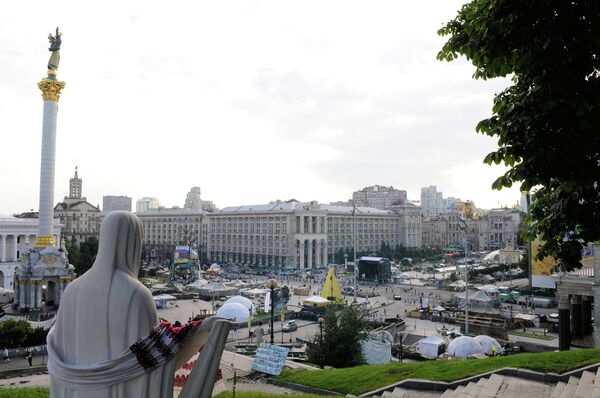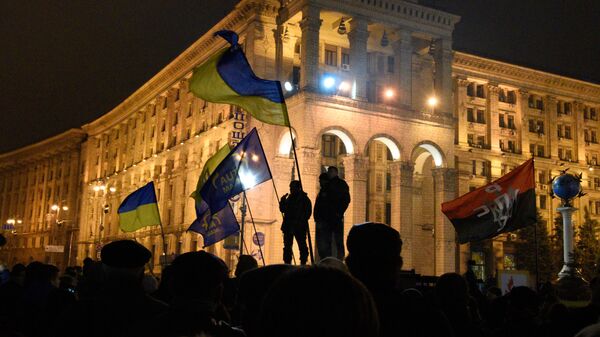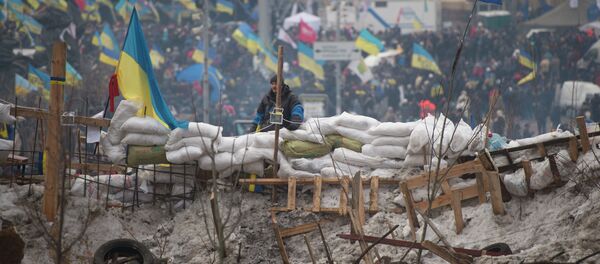He suggested that the International Monetary Fund (IMF) is all but certain to suspend the payment of the next tranche of financial assistance to Ukraine "until it becomes clear the situation in Ukraine will develop."

He also pointed to the "deep disappointment" of the IMF and the ten ambassadors of Western countries over Abromavicius's resignation, something that Johann said indicates Western politicians question Ukraine's willingness to launch reforms.
"And the confidence of the West can be lost very easily," Johann warned.
He also said that nearly two years after the Euromaidan coup, the unanimous approval of reforms in Ukraine has yet to materialize.
"Political differences within the ruling coalition are just another consequence of the continuing influence of interconnected political and economic clans which pursue their own financial interests," he said.
Then-Ukrainian President Viktor Yanukovych was finally toppled, but the escalation of the political crisis left the country bitterly divided, with a bloody armed conflict flaring up shortly after in Ukraine's eastern region of Donbass. Kiev and the West have repeatedly blamed Russia for backing supporters of Donbass independence, allegations that Moscow vehemently denies.




